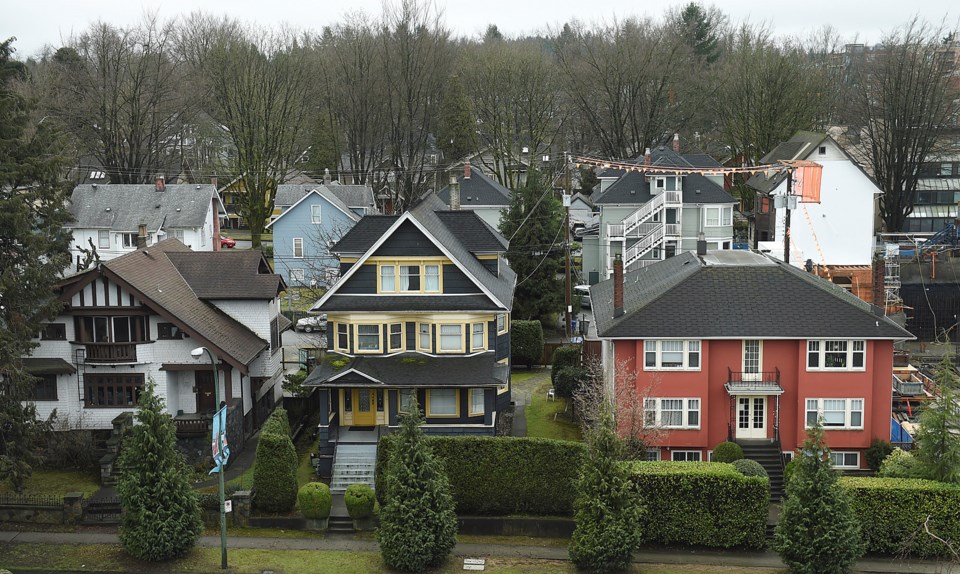Last week’s Re:Address housing summit was a bit of a blast from the past. It had been years since I’d attended a good old-fashioned housing protest. I don’t mean the kind of protests I’ve been covering of late — ones dominated by middle-income earners concerned about being locked out of a run-away housing market, or the sort that come with a trendy hashtag. I mean the kind of housing protest I used to run into frequently back when I was a cub reporter covering city hall; the kind that demands the basics: homes for the most vulnerable people in our society, the ones who would be happy with a roof — any roof — over their heads.
So there I was, intently listening to a panel of representatives from San Francisco, Toronto, New York City and Vienna who were about to address the importance of their national governments’ involvement in tackling housing affordability, when in came a handful of anti-poverty protestors who made the point in exquisite fashion.
The group, part of an organization called the Alliance Against Displacement, rushed the stage brusquely declaring, “F*** your experts, build our homes now!” and demanding 77,000 new units of social housing to be built across Canada each year.
I’m going to be blatantly, embarrassingly honest. I realized in that moment that I had kind of forgotten about social housing. I mean not literally, with homeless people a pervasive fixture in Vancouver neighbourhoods, despite Mayor Gregor Robertson’s promise to house all city residents by 2015, it’s never really possible to forget that one of Vancouver’s calling cards is the unrelenting presence of people in the throes of grinding poverty. But it is easy to tune it out, or rather, drown it out as it has been of late by the rising chorus of middle class people — myself among them — who have only recently encountered the fearful prospect of having nowhere to live.
After the protest, the panel of experts — who graciously gave way for the activists to say their piece — I was reminded of another disturbing phenomenon I used to puzzle over back when I spent more time writing about tent cities in the Downtown Eastside than condo developments in Mount Pleasant: Housing in this country is not a legal right.
Although Canada has signed on to several UN covenants declaring people have the right to “an adequate standard of living,” the right to a roof over your head is not part of the Canadian Constitution. Nor is it part of the United States Constitution, which seems particularly odd given that the fathers of confederation in that country deemed it necessary to enshrine one’s rights to own firearms in law, but not one’s right to a home.
It’s astonishing, really, that the core of our lives, the places where we rest our heads, raise our families and retreat to at the end of the day, are not seen as necessary for our survival in the eyes of the law. It is this glaring omission in our legal framework that evidently underlies the housing crises sweeping cities across North America. Because when the right to housing is not legally protected, governments are not legally obligated to fund it.
It leaves housing policies vulnerable to fluctuating finances and political whims.
It’s why the federal government, under the Liberals, was able to pull out of long-term funding for social housing back in 1994, laying the groundwork for the many, many protests that would follow. It’s why this new Liberal government can swoop in and play the hero with the promise of a national housing strategy. That’s welcome news that is long overdue for people struggling in this city, whether they’re facing nights on the streets, renovictions or the prospect of packing up and leaving town in search of a place big enough for their family. But without the right to housing enshrined in law that demands it is adequately funded in perpetuity, there is nothing to prevent future governments from cancelling the program and landing us right back in this mess.
Back on that conference stage, every housing expert up there voiced that without consistent contributions from senior governments, they don’t see a way out of the cycle of gentrification, displacement and commodification of housing. Well, every place except for Vienna, Austria, which receives hundreds of millions of euros each year from senior governments that go to producing up to 9,000 units of subsidized housing annually. Why? Because in Austria housing is a right.
Jessica.Barrett@gmail.com
@JM_Barrett



